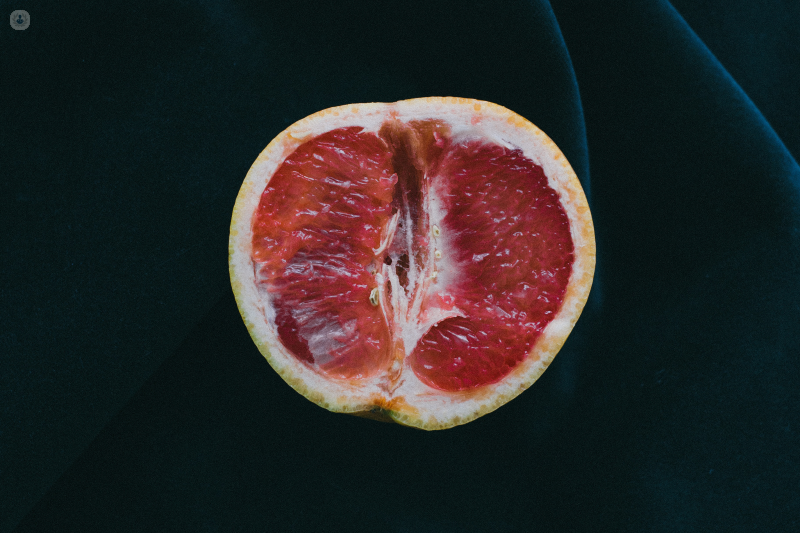Vaginal dryness
Ms Charlotte Chaliha - Obstetrics & gynaecology
Created on: 02-03-2016
Updated on: 10-17-2024
Edited by: Conor Dunworth
What is vaginal dryness?
Vaginal dryness occurs due to a decrease in the levels of oestrogen hormones that keep the vagina lubricated and prevent any kind of pathology. When oestrogen levels are low, the vaginal lining shrinks and thickens, impeding lubrication.
Vaginal dryness is a disorder that occurs frequently in those just before the menopause. This can be due to the decline in the amount of oestrogen produced in the body. Up to 47% of women are affected by vaginal dryness following the menopause.

What are the symptoms of vaginal dryness?
The symptoms related to this problem are a sore and itchy vagina, pain or discomfort during sex, the need to pee more frequently, and urinary tract infections. These things may also reduce your desire to have sex.
Dryness causes difficulty in penetration, which can cause severe pain due to abrasions in the vaginal entrance. These abrasions are accompanied by bladder disorders, burning when urinating and cystitis, which can occur between 24 and 72 hours after intercourse.
What are the causes of vaginal dryness?
The cause of vaginal dryness is often due to a lack of oestrogen. The lack of this hormone can also cause urination disorders and cystitis.
Factors such as smoking, surgical removal of the ovaries, cancer therapies, endometriosis, uterine fibroids or infertility, severe stress, depression, contraceptive pills, antidepressants and breastfeeding can have a significant impact. These things can alter your hormone levels. This change can affect how much vaginal discharge you have.
You can also have vaginal dryness if you:
- Are not aroused during sex.
- Use perfumed soaps, washes or douches in and around your vagina.
- Have an underlying condition such as diabetes.
How can vaginal dryness be treated?
You can try these things before visiting a GP. You can get most of these treatments from a pharmacy without a prescription.
DO
- Use vaginal moisturisers for vaginal dryness, you can put these in and around your vagina to keep it moist.
- Spend time having more foreplay so you feel more aroused during sex.
- Use unperfumed washes and soaps around your vagina.
- Use water-based lubricants before having sexual intercourse. These can be put in and around your vagina but also on your partner’s penis.
DON’T
- Do not use creams or lotions such as petroleum jelly as this can cause an infection.
- Do not use creams that aren’t made for your vagina.
- Do not use fragranced soaps, washes and any douches in and around your vagina.
The causes of your vaginal dryness and treatment options can be determined with the help of a gynaecologist. A common form of treatment involves applying oestrogen-based medications directly to the vagina. This can be in the form of creams, rings that are inserted and replaced after three months, or capsules which are inserted into the vagina two or three times a week.
If your vaginal dryness is due to changes in your hormone levels you may have to go through Hormone Replacement Therapy which is often necessary when vaginal dryness is accompanied by other typical menopausal disorders, such as hot flashes.
Schedule an appointment with one of our specialists if:
- It’s been a few weeks and things you have tried yourself are not working.
- It’s affecting your day-to-day life.
- You continue to see unusual discharge or bleeding from your vagina.
- You have bleeding after sex or in between your periods.














